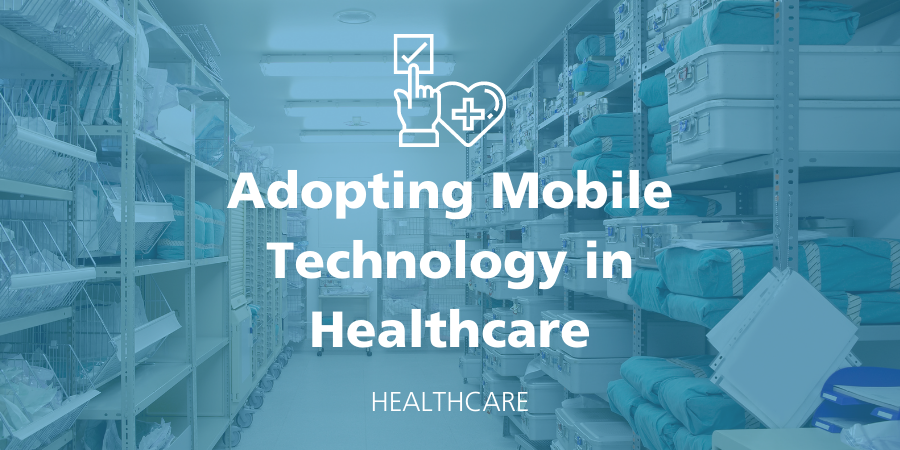
For healthcare providers, every minute that administrators, nurses and doctors spend doing manual work is a minute they could be providing patient care. Recent studies show 42% of healthcare workers believed their current mobile solutions did not meet all of their organization’s needs. Data suggests that mobility is on the rise in healthcare, and yet 4 out of 10 organizations have unmet needs regarding mobility. What are healthcare providers looking for when they adopt mobile healthcare technology? And how can automating healthcare processes improve operations in both your supply chain and your patient care?

It is important that providers know the materials they have on hand and where they are located. According to a study from HIMSS on behalf of Honeywell, there are three key drivers behind adopting mobility:
Having a mobility solution allows for more time at a patient’s bedside. Giving your staff technology can help them better perform patient care. This improves the patient experience and allows for seamless communication between clinicians. According to Zebra, by 2022, 91% of nurses are expected to access electronic health records (EHRs), medical and drug databases, and lab diagnostic results using a mobile device, reducing time spent away from patients.
For healthcare providers, this means maximizing staff productivity by eliminating time spent on error-prone data entry and adopting cloud-based mobility. A mobile materials management system, like RF-SMART, allows them to take control of their inventory. For example, by implementing a PAR management solution, clinicians can rest easy knowing that they have full visibility into what is available in the stockroom.
Additional Resource: Building your Healthcare Supply Chain Strategy in the Cloud
The last thing you want is for technology to be a burden or frustration to your clinician. Those surveyed by Honeywell found that simplicity and ease-of-use are key when it comes to mobility in healthcare.
These days, there are plenty of options when it comes to both consumer and enterprise devices that mirror the look and feel of a familiar smartphone, reducing time spent training on new technology. One consideration to make when choosing hardware for your facility is if your device is compatible with health-care grade cleaners. You will also want to verify that the device you are choosing is compliant with HIPAA and other data security regulations.
Communication is key to providing excellent care. Mobile health technology can bridge the gaps in communication that clinicians face. In fact, 67% of nurses surveyed by Zebra identify that mobile devices have improved staff communication, collaboration, and quality of patient care. The most common mobile devices found in healthcare settings are smartphones and tablets.
In a recent Q&A interview, RF-SMART Partner Manager Joe Cleary said, “We need to re-address how we do things [in public health]. Bolstering your supply chain defenses is a very real outcome. With that comes the need for real-time visibility and accuracy…that’s where holistic, cloud-based solutions come into play.”
Enhanced communication due to mobility reaches beyond doctors and nurses – it extends each part of your organization. Whether it’s the team responsible for Supply Chain or the Finance department, real-time visibility increases the information available to make mission-critical decisions.
Watch the video to learn how Oracle Healthcare customers are leveraging the cloud to improve results:
Watch now: How Oracle Cloud Healthcare Customers Achieve Inventory Accuracy
Mobility is becoming the new standard in patient care. Keep reading for more Hospital Materials Management Best Practices.
Get a monthly recap of our latest Educational Content.
© 2025 RF-SMART. All rights reserved. Privacy Policy